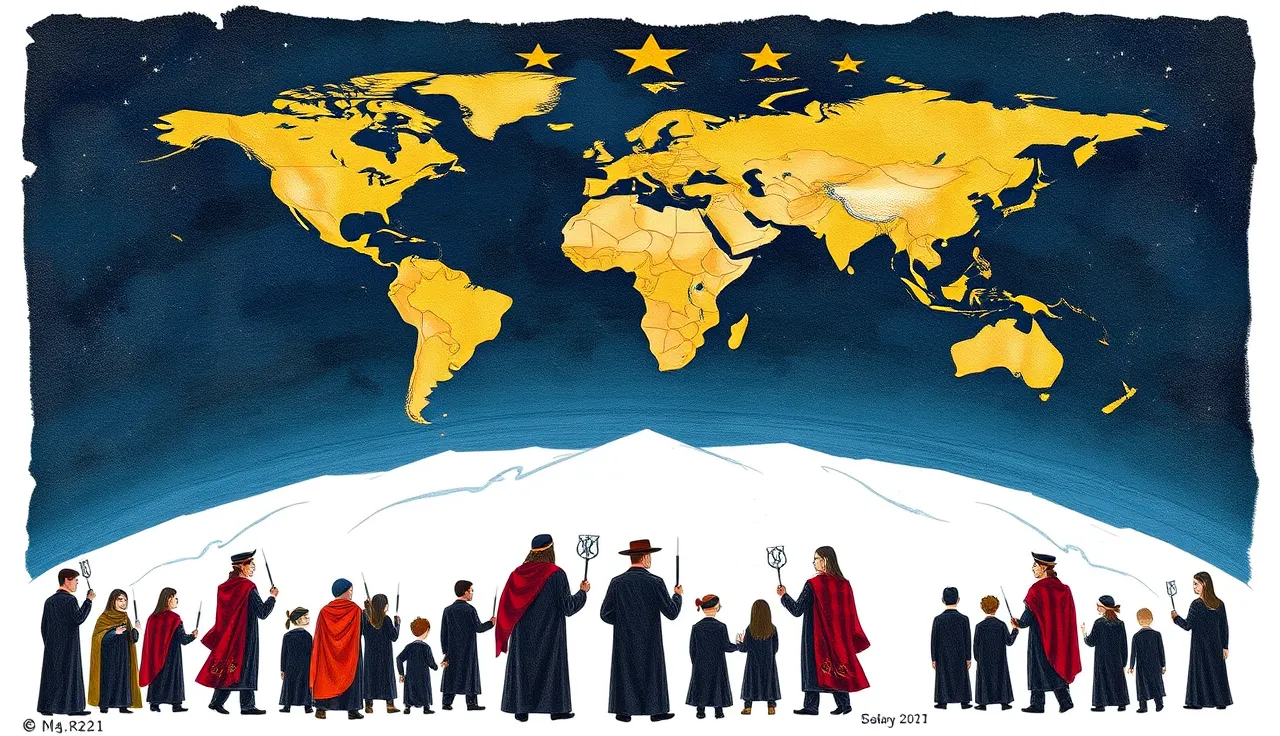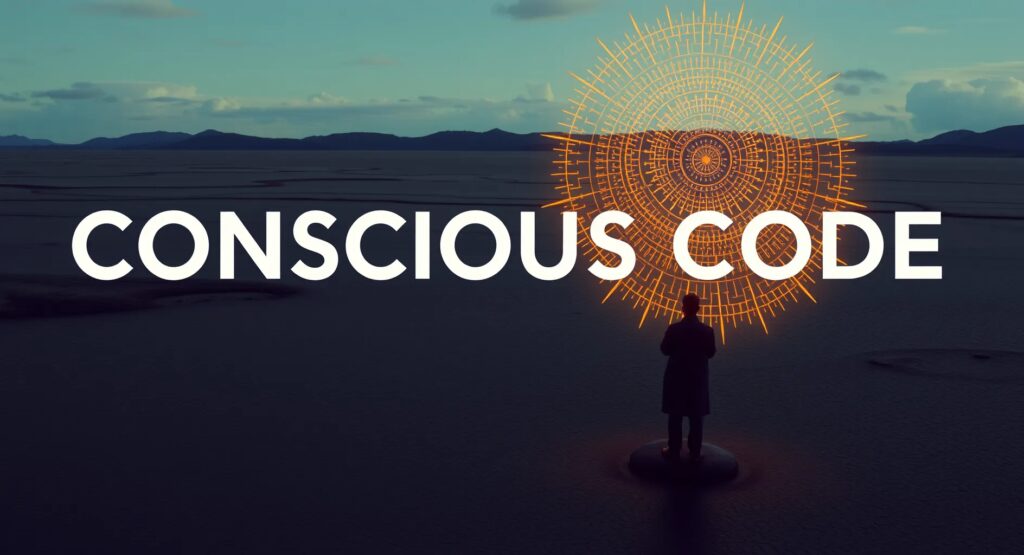
Peace & Security: A Vision for the (near) Future?
As the 21st century progresses, the challenges confronting humanity have become increasingly global in nature.
Issues such as climate change, pandemics, economic inequality, and technological disruption defy national borders, making cooperation between nations not just an ideal, but a necessity. This context has given renewed attention to the idea of a world government, a unified system that could address these challenges with authority and coordination.
The United Nations (UN), with its near-universal membership and established structures, is often seen as the most viable platform for such an endeavor. But is a world government truly feasible, and what role could the UN play in achieving it? In this extended exploration, we delve into the drivers of global governance, the potential evolution of the UN, and the strategies needed to overcome the hurdles standing in the way of a unified global system.
The Case for Global Governance
Shared Challenges and the Need for Unity
1. Global Crises Demand Global Solutions
The most pressing challenges facing humanity are inherently global, making national solutions inadequate.
- Climate Change: Rising temperatures, extreme weather events, and environmental degradation require global coordination in reducing emissions and transitioning to sustainable energy sources.
- Pandemics: The COVID-19 pandemic demonstrated the need for unified responses, from vaccine distribution to public health measures. Fragmented efforts only prolong crises.
- Economic Instability: Global financial systems are interconnected. A crisis in one region, such as the 2008 financial collapse, can quickly cascade worldwide.
2. Geopolitical Instability
In addition to natural and economic crises, political instability poses a growing threat. Tensions between major powers like the United States and China, conflicts in regions such as the Middle East and Russia’s ongoing aggression in Ukraine, contribute to a volatile global landscape.
These flashpoints highlight the need for a unified governance system that can mitigate these risks by promoting diplomacy, reducing unilateralism, and offering peaceful conflict resolution mechanisms. In addition to natural and economic crises, political instability poses a growing threat.
Tensions between major powers like the United States and China, conflicts in regions such as the Middle East, and the rise of authoritarian regimes contribute to a volatile global landscape. A unified governance system could mitigate these risks by promoting diplomacy and reducing unilateralism.
3. Technological Disruption
Advancements in artificial intelligence (AI), automation, and biotechnology have transformative potential but also bring risks, including job displacement, surveillance, and ethical dilemmas. International agreements are needed to regulate these technologies for the common good.
The United Nations: A Foundation for Global Governance
Strengths of the UN

The UN already provides a robust foundation for global governance:
- Global Representation: With 193 member states, the UN encompasses nearly every nation, providing a platform for inclusive dialogue.
- Established Frameworks: The UN’s specialized agencies, such as the World Health Organization (WHO) and the United Nations Development Programme (UNDP), address a wide range of global issues.
- Moral Authority: Documents like the Universal Declaration of Human Rights set universal standards that resonate globally.
Limitations of the Current System
Despite its strengths, the UN’s effectiveness is hampered by several limitations:
- Power Imbalances: The Security Council, dominated by its five permanent members (P5), often reflects geopolitical rivalries rather than collective interests.
- Lack of Enforcement Power: Resolutions are frequently non-binding, leaving critical initiatives unenforced.
- Financial Constraints: The UN relies heavily on voluntary contributions, limiting its independence and capacity.
A Blueprint for an Empowered United Nations
The UN’s authority depends heavily on the political will of its most influential members. To evolve into a global governance body capable of addressing humanity’s challenges, the UN must undergo significant reforms.
Will nations recognize this particular opportunity in the foreseeable future? Below is a detailed blueprint for this transformation.
1. Reforming the Security Council
The Security Council’s current structure is a major obstacle to legitimacy and effectiveness.
Expanded Membership
- Include emerging powers such as India, Brazil, and South Africa as permanent members to reflect contemporary geopolitical realities.
- Introduce regional representation for blocs like the African Union or ASEAN to ensure inclusivity.
Limiting Veto Power
- Restrict veto use to matters of war and security, allowing other issues to be decided by majority or supermajority votes.
- Encourage the P5 nations to adopt a voluntary code of conduct to limit veto use on humanitarian crises.
2. Financial Independence
A financially autonomous UN would be better equipped to act decisively.
Global Taxation
- Implement a carbon tax to fund climate initiatives, with contributions proportional to national emissions.
- Introduce a financial transaction tax on cross-border financial activities to support global development projects.
Mandatory Contributions
- Replace voluntary contributions with mandatory assessments based on each nation’s GDP or ecological footprint.
3. Democratizing Representation
To gain legitimacy and public trust, the UN must adopt more democratic structures.
Global Parliamentary Assembly
- Create a parliamentary assembly where representatives are directly elected by citizens worldwide. This body would complement the General Assembly and add democratic legitimacy.
Weighted Voting Systems
- Adjust voting mechanisms to balance population size, economic contributions, and regional equity to ensure fair representation.
4. Enhancing Enforcement Mechanisms
To ensure compliance with global decisions, the UN must have enforcement capabilities.
Binding Resolutions
- Grant the General Assembly authority to pass binding resolutions on critical issues like climate change, human rights, and AI regulation.
- Establish mechanisms for imposing sanctions or other penalties for non-compliance.
Permanent Peacekeeping Force
- Create a standing UN military force with multinational participation to respond rapidly to conflicts and humanitarian crises.
5. Leveraging Technology for Governance
Modern technology can revolutionize the UN’s operations and improve transparency and efficiency.
AI-Driven Governance
- Utilize AI systems to analyze data, predict crises, and optimize decision-making.
- Deploy AI for real-time resource allocation during emergencies, such as disaster relief or pandemic response.
Digital Participation Platforms
- Develop secure digital platforms for global citizens to participate in UN initiatives and decision-making processes, fostering engagement and accountability.
Blockchain Transparency
- Use blockchain technology to track funding, ensuring transparent and efficient use of resources.
The Role of AI in Global Governance
AI has transformative potential in global governance, particularly in enhancing the UN’s ability to manage complex challenges.
Key Applications
- Crisis Prediction and Management: AI can analyze climate models, track disease outbreaks, and predict political conflicts, enabling proactive interventions.
- Policy Optimization: Machine learning algorithms can identify the most effective policies based on historical data and real-time inputs.
- Global Participation: AI-driven platforms can enable citizens worldwide to contribute ideas, vote on issues, and hold leaders accountable.
Ethical Considerations
While AI offers significant benefits, it also raises concerns about privacy, bias, and misuse. Establishing international guidelines for the ethical use of AI is essential.
Nationalism is an infantile disease. It is the measles of mankind.
— Albert Einstein
Political Strategies for Reform
Achieving the ambitious reforms outlined above requires overcoming substantial political resistance. The following strategies can help build momentum:
1. Coalition Building
- Forge alliances among middle powers (e.g., Canada, Germany, South Korea) to advocate for reform.
- Engage regional blocs like the European Union and the African Union to act as unified voices in support of change.
2. Public Engagement
- Educate citizens about the UN’s role and potential through campaigns and school curricula.
- Promote a sense of global citizenship, emphasizing shared benefits like peace, stability, and prosperity.
3. Incremental Reforms
- Start with pilot programs in areas like climate governance or AI regulation to demonstrate the feasibility and benefits of global coordination.
- Use successful initiatives as models to scale up reforms.
Challenges to Global Governance
1. Sovereignty Concerns
Nations may resist ceding authority to a global body. Addressing this requires:
- Ensuring that reforms respect regional autonomy and cultural diversity.
- Framing global governance as a partnership rather than a hierarchy.
2. Geopolitical Rivalries
Major powers may oppose reforms that threaten their dominance. Mitigation strategies include:
- Offering symbolic leadership roles to incentivize participation.
- Creating neutral forums for dialogue to build trust.
3. Public Skepticism
Fears of authoritarian overreach must be addressed through:
- Transparent decision-making processes.
- Mechanisms for public oversight and participation.
A Decade of Progress: A Positive Outlook on Global Governance
While establishing a fully-fledged world government within the next 10 years may seem ambitious, significant progress toward enhanced global governance, led by the United Nations (UN), is achievable. The alignment of emerging technologies, shifting public awareness, and increasing global interdependence creates a unique opportunity for the UN to lead transformative reforms. Here’s why the next decade could mark a turning point.
Growing Recognition of Shared Challenges
The global community is increasingly aware that crises like climate change, pandemics, and geopolitical instability require collective solutions. Public support for global cooperation has surged, as seen in movements advocating for climate action and equitable vaccine distribution. This momentum can serve as the foundation for expanding the UN’s authority and reach.
Reforms Already Underway
The UN has demonstrated its adaptability in areas like the Paris Climate Agreement and the Sustainable Development Goals (SDGs). Building on these successes, the next decade could see:
- Expanded global compacts on climate, human rights, and technology governance.
- Incremental yet impactful reforms in the Security Council and General Assembly to increase inclusivity and legitimacy.
The Role of Technology in Governance
Advances in AI and digital platforms offer tools to enhance the UN’s efficiency and public engagement. AI-driven models can optimize decision-making, while blockchain technology ensures transparency and accountability. These innovations can make the UN more accessible and responsive, bridging the gap between global institutions and citizens.
Shifting Geopolitical Realities
Emerging powers like India, Brazil, and South Africa are advocating for more inclusive governance structures. Their engagement could help build consensus for reforms that distribute power more equitably, fostering trust and cooperation among nations.
Public Demand for Unity
In a hyperconnected world, younger generations are increasingly identifying as global citizens. This shift in perspective can drive public support for a strengthened UN, especially if it prioritizes transparency, inclusivity, and equity.
Conclusion: The Path Forward
The idea of a world government is both ambitious and fraught with challenges, but the growing urgency of global crises makes it a concept worth pursuing. By leveraging its existing structures and embracing transformative reforms, the United Nations could serve as the foundation for a unified global governance system.
This vision will require bold leadership, innovative strategies, and a commitment to inclusivity and transparency. As humanity faces unprecedented challenges, the choice is clear: unite for the common good or risk a fragmented and uncertain future. The UN remains our best hope for turning the dream of global unity into a reality.
Resources
- United Nations Website – Official site providing access to UN programs, resolutions, and initiatives.
- World Economic Forum – Global Governance – Insightful discussions and reports on global governance challenges and opportunities.
- International Monetary Fund (IMF) – Resources on economic stability and international cooperation.
- Artificial Intelligence and Global Governance – UNDP – Articles and initiatives exploring the role of AI in governance.
- The Paris Agreement – United Nations Framework Convention on Climate Change (UNFCCC) – Key global treaty on climate action.
- Human Rights Watch – Advocacy for the protection and promotion of human rights globally.


